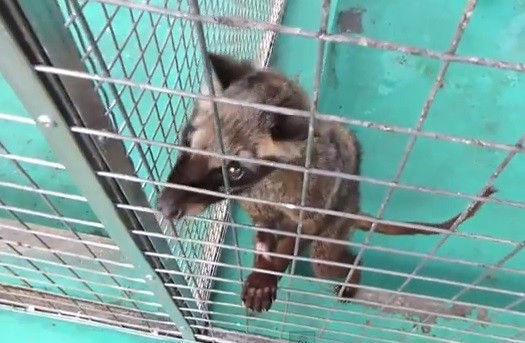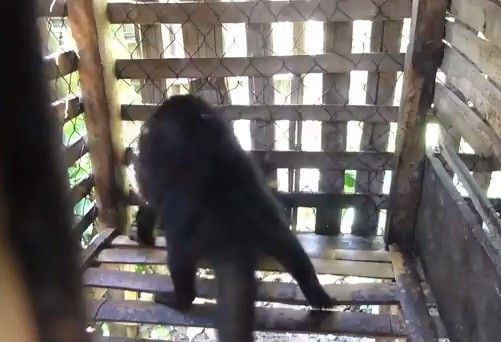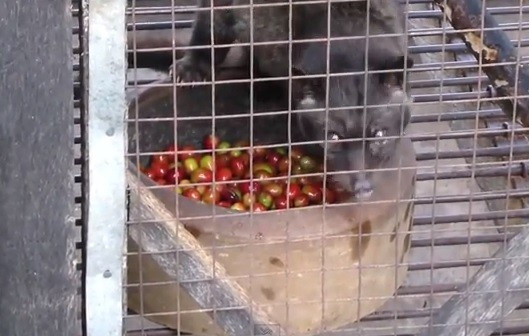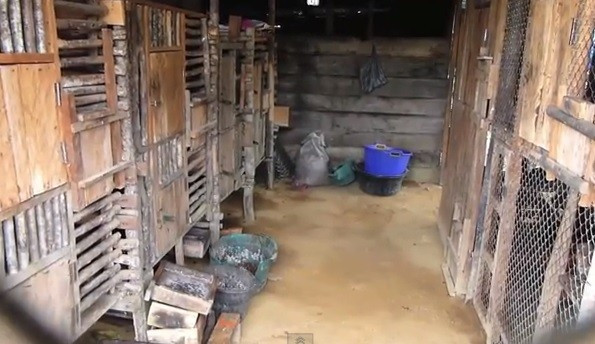World's Cruellest Cup of Coffee: Wild Civets Locked in Tiny Filthy Cages to Produce Kopi Luwak [VIDEO]

The world's most expensive cup of coffee is also the cruellest, with tiny mammals kept in tiny filthy cages to produce beans for trade.
Civet coffee, also known as kopi luwak, is made from beans of coffee berries that have been eaten and excreted by Asian palm civets.
Civet beans sell for over £140 per lb and can cost up to £60 per cup. It is included in Harrods' The Decadence Hamper, which also contains caviar as well as goose and duck fois gras.
An investigation by People for the Ethical Treatment of Animals (Peta) has found that that animals at civet coffee farms in Indonesia and the Philippines are kept in awful conditions and often go insane from being locked in tiny cages.

Footage shows the civets locked in dirty, barren cages, suffering from skin infections.
They showed neurotic behaviour, such as pacing, spinning and head-bobbing, all of which suggest the animals, which were caught in the wild, are under extreme stress from boredom and depression.
Despite these conditions, the farms also advertise their beans as being "wild-sourced". At two of the farms, the investigator was told those running the business have no problem labelling their product as "100% wild-sourced", despite relying on caged animals.
A farmer explained that they are caged for around three years but when they are released, they rarely survive.

In the wild, civets are able to climb trees to reach coffee berries. In farms, they are fed more fruit than they would normally eat, which harms their health. The civets also become ill from a lack of vitamins and nutrition.
Mimi Bekhechi, Peta's UK associate director, said: "Drinking coffee made from beans that were plucked from faeces isn't the most unappetising aspect of civet coffee. Confining civet cats for years - as they go mad and lose their fur from the stress - for an expensive cup of Joe would turn the stomach of any compassionate person."
A BBC report from earlier this month also found evidence of animal cruelty on civet coffee farms.

An expert said he was "totally convinced" coffee from these farms end up being consumed on the London market. Tony Wild, former coffee trader and author of Coffee: A Dark History, said: "The whole reason everybody regurgitates that story is that by being incredibly rare, you can keep a ridiculously high price."
A spokesperson for Harrods said: "Harrods works closely with all its suppliers to ensure the highest standards of ethical sourcing, production and trade are maintained. This is carried out through strict auditing procedures.
"Our exclusive supplier ... has given Harrods every assurance the coffee we are provided with is organic, and comes from wild palm civets."
© Copyright IBTimes 2025. All rights reserved.




















